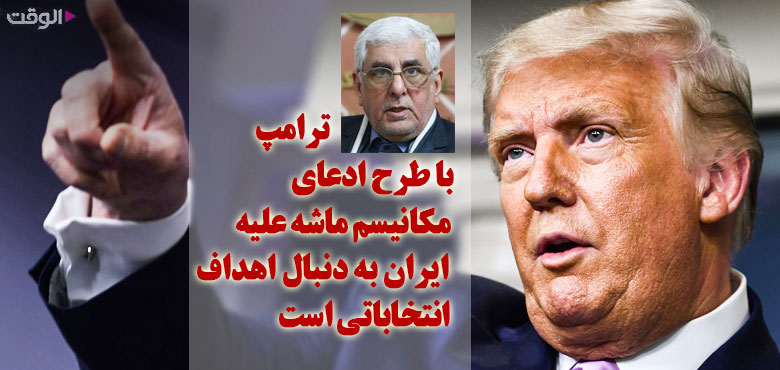Alwaght- Although, the US push to snap back Iran Sanctions at the United Nations Security Council was faced with widespread international objection, the American foreign policy men are pushing forward with their bid to re-impose sanctions against Tehran through any possible way.
The US Secretary of State Mike Pompeo and the former head of the Iran Action Group at the Department of State Brian Hook said on Saturday that they ask Niger and Indonesia as the two temporary members of the UNSC to put on vote draft resolution against Iran.
Another option for Washington is that the US itself presents to the UNSC the snapback resolution or ask the Dominican Republic as the only supporter of American anti-Iranian agenda to do so.
Meanwhile, there are several views expressed surrounding the possibility of the US success, the reason behind the European push against their traditional ally the US, and the link of the case to the US presidential elections in November. Alwaght has talked to Professor Hassan Hanizadeh, an Iranian international affairs expert, asking him to give a picture of what is happening in relation to the US motion.
Mr Hanizadeh was first asked about what he thinks about the US effort to snap back the US sanctions against Tehran that were lifted under the 2015 nuclear deal. He said that in the current conditions, the US president is seeking to use the snapback mechanism instrumentally for election intentions. The US, he added, has lost all of its game cards against Iran and now tries to increase the already-failed pressure against Iran using the snapback of UN sanctions.
“Given the regional and international conditions and also Iran's commitment to the terms of the JCPOA (Joint Comprehensive Plan of Action), the US lacks any support for its snapback triggering bid. Over the past five years, as all know, the International Atomic Energy Agency has confirmed in 14 reports Iran’s compliance with the terms of the agreement. This made the international community oppose the US in anti-Iranian arms embargo bid and snapback mechanism despite their partnership with Washington.”
Asked if the support for the US at the UNSC is narrowing, Mr Hanizadeh said that the Security Council has always been abused at the service of the US interests but now it is a scene to the international opposition to Trump and the US.
“Now all of the actors are worried to see the US is instrumentally using the Security Council. Although the European Union in the past sided with Washington in a variety of cases, now it cannot go with the US unilateralism and bullying. This is increasingly isolating the US on the international stage. This isolation can deeply influence Trump's loss in November. The European Union knows very well that Trump has no remarkable chance of victory in the upcoming election.”
The expert continued that the collection of the US efforts to activate the snapback against Iran should be regarded as a fiasco to Washington and a triumph to Tehran. The line of US defeats, Mr Hanizadeh said, started with the failure in making the world rally behind Washington in the arms embargo extension bid and now continued with the opposition of 13 UNSC members to return of the sanction on Iran through snapback path. “In this victory, the Iranian people’s resistance and the guidance of the Leader [Ayatollah Sayyed Ali Khamenei] both at home and in the region have been influential.”
In another part of the interview, the Iranian expert commented on the recent tensions between the US and the EU, saying that Europeans in the past few years have sustained serious political, economic, and reputational damages due to Trump’s bullying and illogical policies. This caused deep division in the European-American viewpoints. Europeans predict that Trump may lose the November election. As a result of the Trump policy, the US has lost a majority of his allies, including Washington’s traditional allies, namely the Europeans.
Touching on the expected visit to Iran of IAEA chief Rafael Grossi and the coincidence of the trip with the diplomatic tensions between Washington and Tehran surrounding the Iranian nuclear program, Hanizadeh explained that the IAEA intends to publish a report on Iran's adherence to the JCPOA terms. The report at the time being can assure that Iran still adheres to the terms of the deal. “This can add to the pressures the US is facing in its push,” he concluded.



























